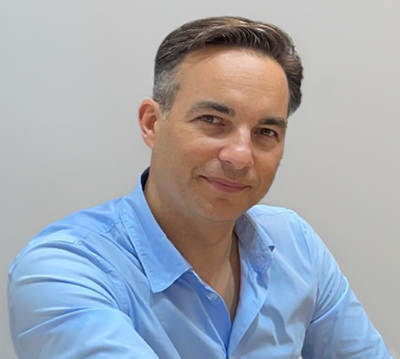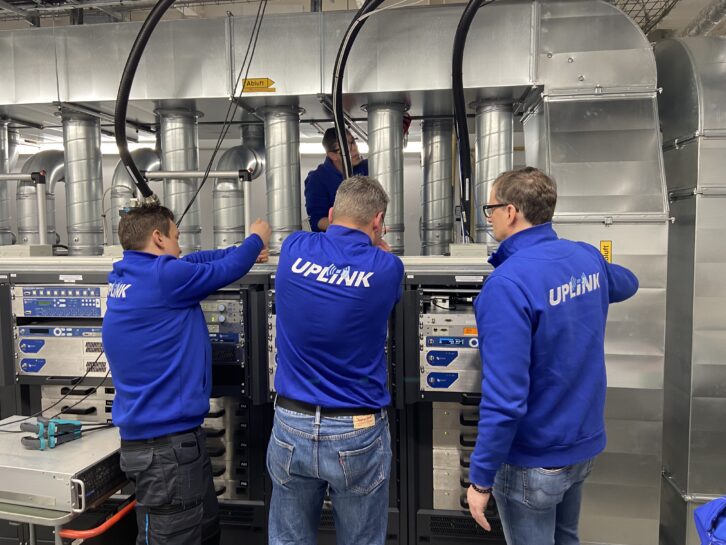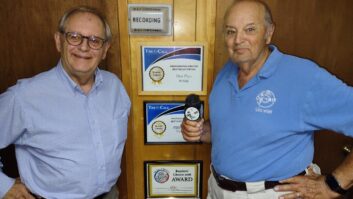Gregory Mercier is director of product marketing and pre/post-sales support for WorldCast Systems. This interview is excerpted from the ebook “Sustainability in Radio.”
Radio World: How would you define “sustainability” as it relates to our industry?

Gregory Mercier: In the broadcasting industry, sustainability means reducing environmental impact while ensuring that operations remain efficient and reliable. It includes minimizing energy consumption, lowering CO2 gas emissions, reducing hardware waste and optimizing the use of natural resources.
For companies like WorldCast Systems, this also involves designing and deploying technology that supports long-term environmental objectives while improving — or at the least without compromising — on performance.
RW: How important are such considerations to broadcast organizations, in your experience?
Mercier: Sustainability is becoming increasingly important as broadcasters and governments prioritize green initiatives. Many broadcasters are now actively seeking solutions that will help them reduce costs, comply with environmental regulations and achieve their sustainability goals. In my experience, sustainability is not just a trend but a necessity for long-term success in the industry.
RW: What kind of practices would fall under this discussion?
Mercier: Specific sustainable practices in broadcasting include:
Energy-efficient transmitters — Our Ecreso transmitters, for instance, are designed with energy efficiency in mind. They are highly efficient (up to 76%) and integrate SmartFM, which further reduces energy consumption by dynamically adapting transmission power to real-time conditions.
All-IP solutions — Our APT solutions for audio and MPX over IP help broadcasters transition to IP-based and virtualized distribution, which can reduce the need for legacy hardware.
Monitoring solutions — Embedded transmitter tools and our Audemat signal monitoring range help ensure signal quality and efficient broadcasting, thus reducing optimizing equipment usage and life.
Remote management — Our Kybio end-to-end monitoring solution helps broadcasters detect issues early, minimizing site visits, reducing the carbon footprint associated with travel and unnecessary maintenance work.
RW: A document from the European Broadcasting Union states that the main environmental impacts of the broadcasting industry are greenhouse gas emissions, energy use, raw material consumption and electronic waste. How can organizations improve in these areas?
Mercier: Organizations can improve in several ways.
Reducing energy consumption — By using energy-efficient transmitters and adding SmartFM technology to reduce their energy footprint by up to 40%.
Prolonging equipment lifespan — Regular monitoring and proactive maintenance, enabled by tools like Kybio, extend the operational life of equipment.
Switching to virtual/software infrastructures — Using software-based features, like those facilitated by Virtual APT IP Codecs and AiO Series FM transmitters, can minimize hardware, cabling, maintenance and reduce raw material consumption..
Recycling and sustainable disposal — Encouraging responsible recycling and sustainable disposal of outdated equipment should also be a priority for broadcasters.

RW: What is the most carbon-intensive aspect of broadcast operations?
Mercier: The energy consumption of transmitters and the physical travel associated with maintaining transmitter sites. That’s why our SmartFM technology is such a game-changer; it addresses the largest carbon contributor, energy use, by making transmission more efficient and increase equipment lifespan.
RW: Are there broadcasters who stand out in thinking about this?
Mercier: Yes, there are broadcasters who have taken a proactive approach. Several European broadcasters have integrated our Ecreso transmitters with SmartFM technology to a very large scale and are seeing huge energy savings while maintaining top-tier broadcast quality. These broadcasters are forward-thinking in how they manage both their environmental and operational responsibilities.
RW: How do you collect, measure and report your own ESG data?
Mercier: While we are not required to produce ESG reports due to the size of our business, we voluntarily monitor several key environmental indicators. We track our consumption of water, electricity and paper, as well as business travel and commuting habits.
Additionally, we are ISO 14001 certified, which reinforces our commitment to environmental management. This certification helps us ensure that our practices align with international standards and continuously reduce our environmental impact, even in the absence of formal reporting obligations.
RW: Do you or your clients assess greenhouse gas emissions under protocols like those from the World Resources Institute and World Business Council for Sustainable Development?
Mercier: We calculate our greenhouse gas emissions using the Bilan Carbone methodology. This allows us to produce reports aligned with various international protocols and helps us better understand and manage our carbon footprint. Additionally, some of our clients request this type of information, especially during tenders, and are increasingly prioritizing sustainability aspects when selecting suppliers or to calculate their own carbon footprint.






